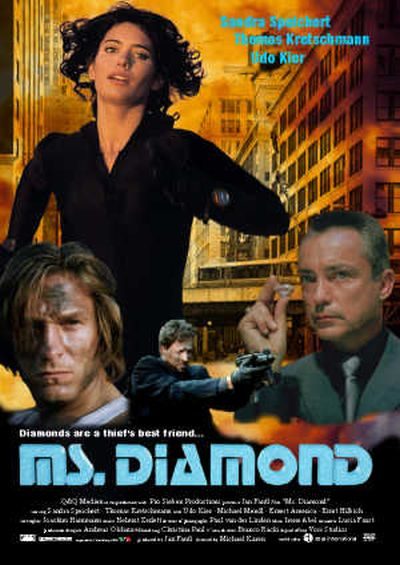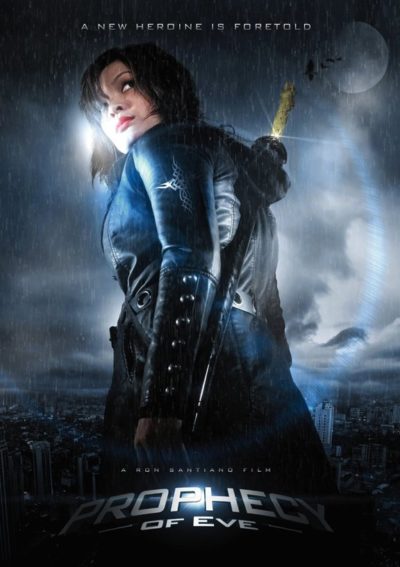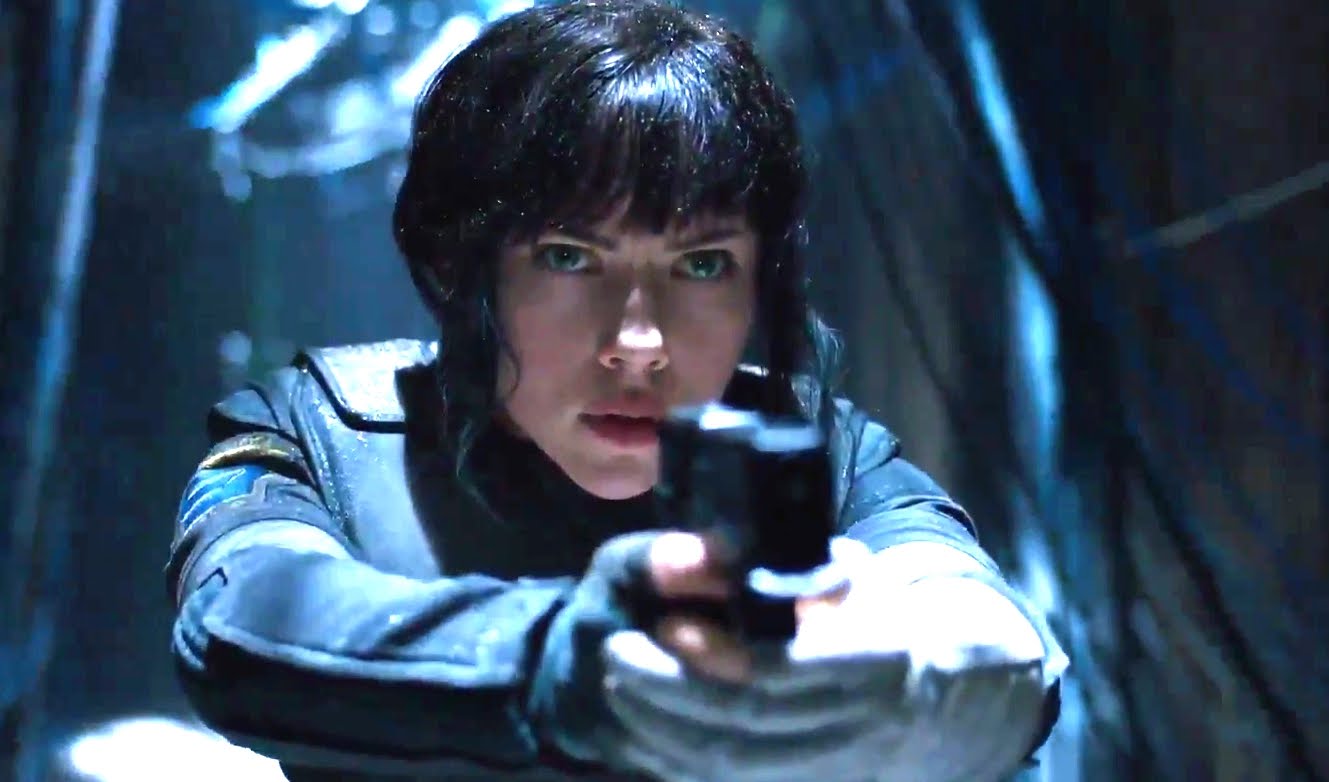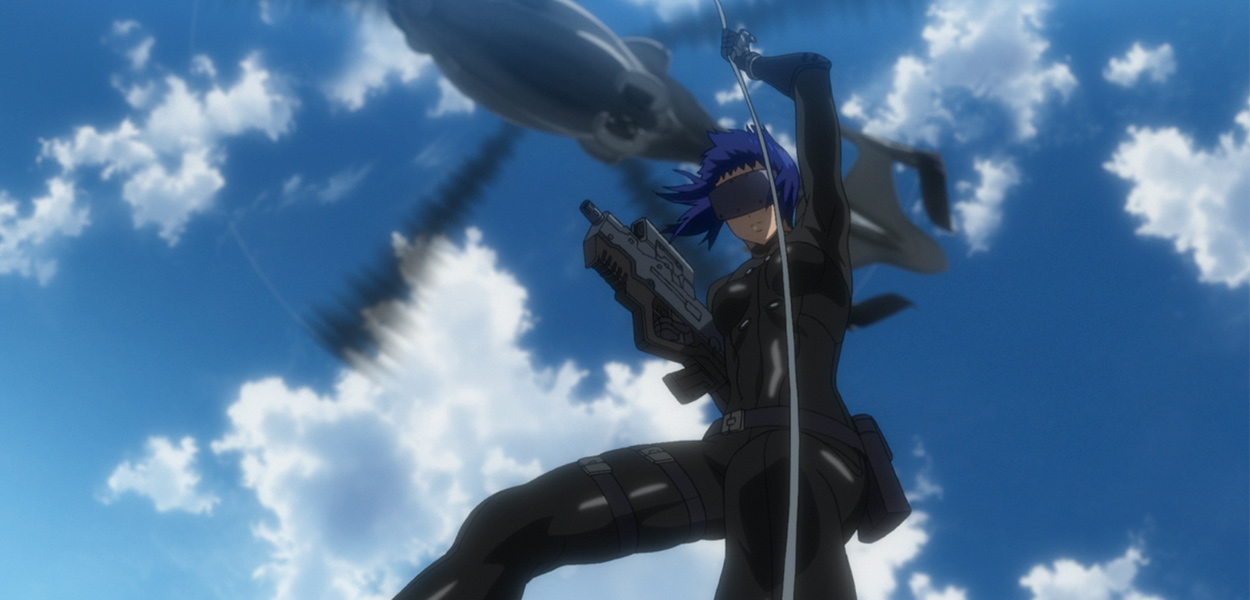★★★
“In the jungle, the Lee-on sleeps tonight…”
 This is confusing. For the IMDb lists a completely different film by the same title – also made in 1991 and starring Moon Lee. That one stars Simon Yam: this one doesn’t. Meanwhile, Amazon has Yukari Oshima in the cast – I may have blinked and missed her, but more likely she was in the other one. It is also, despite the title, entirely unrelated to the Angel series, though did remind me I’ve not yet got round to reviewing parts two and three of that. If you see it referred to as Mission Kill and Mission of Condor too, I think that’s the “other” Angel Force as well; one site even refers to this movie as Lethal Blood 2, although it bears no relation to the first movie there either. I hope this helps…
This is confusing. For the IMDb lists a completely different film by the same title – also made in 1991 and starring Moon Lee. That one stars Simon Yam: this one doesn’t. Meanwhile, Amazon has Yukari Oshima in the cast – I may have blinked and missed her, but more likely she was in the other one. It is also, despite the title, entirely unrelated to the Angel series, though did remind me I’ve not yet got round to reviewing parts two and three of that. If you see it referred to as Mission Kill and Mission of Condor too, I think that’s the “other” Angel Force as well; one site even refers to this movie as Lethal Blood 2, although it bears no relation to the first movie there either. I hope this helps…
Regardless, I wondered early on if this would even qualify, as May (Lee) takes a back seat, playing second banana to her boss, Peter (Lam). He has been tasked with rescuing kidnapped Westerner Harrison, stashed away after his capture, deep in the Burmese jungle by local drug lord, Khun Sa [who appears to have been a real person]. After putting together a team, on virtually the eve of the recovery mission, Peter is gunned down in an attempted hit, and it’s up to May to lead things. There are problems both outside and inside the team. A mole is leaking information on the mission to the people they are after, and the first guy Peter recruits, Benny (Ng), turns out to be a borderline psycho, who gets a bit rapey with a captured enemy. It’s up to May to complete the mission, get out alive, and then figure out who is the informant.
Right from the start here, there’s no shortage of action. Though a bit too much of it consists of two group spraying automatic gunfire at each other, through thick jungle foliage and with all the accuracy of Imperial Stormtroopers. While I am never averse to seeing a guard-tower explode in a good, giant fireball, there is a limit to the appeal of such things, and it is certainly reached here, well before the arrival of what may be the first deus ex helicopter in cinema history. I was also amused by the painfully early nineties approach to both mobile phones the size of bricks, and high-tech searches represented by a computer screen where the text largely consists of word-processor installation instructions. No wonder the team ended up with Psycho Benny.
Fortunately, the guns here jam or run out of ammo with regularity which could be concerning if I were a weapons manufacturer. As a viewer though, the film is on far more solid ground when dealing with the hand-to-hand action. Lee leads from the front with some fights that showcase her speed and agility to good effect. The most notable of these is a battle against Fujimi Nadeki after the near-assassination of Peter, in which May chases the killer through the streets on a motorcycle, to a half-demolished building. A savage gun-battle follows, notable not least for May’s point-blank execution of one man, ending with her going up against Nadeki. While it forms the high point, more or less any time Lee puts the gun down is a good indication you should start paying greater attention here.
Dir: Shan Hua
Star: Moon Lee, Wilson Lam, Hugo Ng, Fong Lung
a.k.a. Tian shi te jing





 There’s an exhibition showcasing the first diamonds ever mined in Germany, dug up by the company belonging to Buhler (Kier). Keeping thing safe is the responsibility of security expert Tim (Kretschmann), who doesn’t realize that renowned jewel thief Lana (Speichert) has her eyes on the jewels. So they’re both in for a nasty surprise, because after Lana is caught by Tim in the process of stealing them, it turns out the diamonds are completely fake. Buhler gives her an ultimatum: Lana must find the real diamonds, or she’ll be handed over to the police, and to ensure she doesn’t just run off, tasks Tim with keeping an eye on her. It soon becomes clear, though, that there is more to the mystery than there appears initially, and someone is very keen to stop them from getting to the truth.
There’s an exhibition showcasing the first diamonds ever mined in Germany, dug up by the company belonging to Buhler (Kier). Keeping thing safe is the responsibility of security expert Tim (Kretschmann), who doesn’t realize that renowned jewel thief Lana (Speichert) has her eyes on the jewels. So they’re both in for a nasty surprise, because after Lana is caught by Tim in the process of stealing them, it turns out the diamonds are completely fake. Buhler gives her an ultimatum: Lana must find the real diamonds, or she’ll be handed over to the police, and to ensure she doesn’t just run off, tasks Tim with keeping an eye on her. It soon becomes clear, though, that there is more to the mystery than there appears initially, and someone is very keen to stop them from getting to the truth. This will be a slightly shorter review than usual. For there’s not much to say about a film which runs only 77 minutes, yet still somehow managed to feels both confused and full of unnecessary padding. “Well done”, maybe? Certainly, as a model of what
This will be a slightly shorter review than usual. For there’s not much to say about a film which runs only 77 minutes, yet still somehow managed to feels both confused and full of unnecessary padding. “Well done”, maybe? Certainly, as a model of what  Teetering on the edge of qualifying as false information, this TVM was originally released under the more relevant, yet great deal less salacious (and, let’s be honest, less appealing) title of A Nanny’s Revenge, along with a greatly subdued sleeve. Marketing works, people: for put it this way, I’d never have watched it in that presentation. I can’t feel
Teetering on the edge of qualifying as false information, this TVM was originally released under the more relevant, yet great deal less salacious (and, let’s be honest, less appealing) title of A Nanny’s Revenge, along with a greatly subdued sleeve. Marketing works, people: for put it this way, I’d never have watched it in that presentation. I can’t feel 
 After their mother has a meltdown at her job and ends up in jail: teenage sisters Deidra (Murray) and Laney (Crow, somewhat infamous for her post-elimination meltdown on The X Factor) are left to fend for themselves. With household bills piling up – never mind trying to fund Mom’s bail, or even Deidra’s long dreamed-of college tuition – and Child Protective Services looming, things look bleak. But a visit to deadbeat Dad Chet (Sullivan, channeling David Spade), who works for a railway company, gives Deidra an idea. Hop aboard the freight trains that run by the back of their house, pop open a container to take some goods, and fence them on for cash. Things go surprisingly well, until a disgruntled railroad cop, Truman (Nelson), starts to close in on the pair, intent on rebuilding his reputation after an incident in Arizona.
After their mother has a meltdown at her job and ends up in jail: teenage sisters Deidra (Murray) and Laney (Crow, somewhat infamous for her post-elimination meltdown on The X Factor) are left to fend for themselves. With household bills piling up – never mind trying to fund Mom’s bail, or even Deidra’s long dreamed-of college tuition – and Child Protective Services looming, things look bleak. But a visit to deadbeat Dad Chet (Sullivan, channeling David Spade), who works for a railway company, gives Deidra an idea. Hop aboard the freight trains that run by the back of their house, pop open a container to take some goods, and fence them on for cash. Things go surprisingly well, until a disgruntled railroad cop, Truman (Nelson), starts to close in on the pair, intent on rebuilding his reputation after an incident in Arizona. I think it’s the “poorly written” aspect which I find most offensive. For I’m entirely down for some good ol’ entertainment in the form of justified violence, from Dirty Harry through Ms. 45 to Starship Troopers. But this… Oh, dear. The most stunning thing was discovering that this was the first in a series of twenty-seven novels in the “Sisterhood” series. Twenty-seven. I guess this proves there’s a market for this kind of thing, though I am completely at a loss as to who it might be. It certainly isn’t me.
I think it’s the “poorly written” aspect which I find most offensive. For I’m entirely down for some good ol’ entertainment in the form of justified violence, from Dirty Harry through Ms. 45 to Starship Troopers. But this… Oh, dear. The most stunning thing was discovering that this was the first in a series of twenty-seven novels in the “Sisterhood” series. Twenty-seven. I guess this proves there’s a market for this kind of thing, though I am completely at a loss as to who it might be. It certainly isn’t me.
 My wife is a big fan of Sandra Oh, for her long-time work on soapy medical drama, Grey’s Anatomy. This is about as far from that as imaginable. It’s a gloriously mean-spirited “comedy” [and I used the quotes out of reverence, not in a bad way], which combines social satire with gleeful hyper-violence, at a level where you would not expect to find serious actresses. Veronica (Oh) and Ashley (Heche) knew each other in college, and have since grown apart. Veronica is now wife to a defense contractor; Ashley a largely unsuccessful artist. They meet at a birthday party, and instantly the hate begins, each representing everything the other finds reprehensible. The night ends in a stairwell brawl, which leaves Veronica in a coma for two years. She awakens, to discover she has lost everything, and Ashley is now on top, enjoying commercial and critical success.
My wife is a big fan of Sandra Oh, for her long-time work on soapy medical drama, Grey’s Anatomy. This is about as far from that as imaginable. It’s a gloriously mean-spirited “comedy” [and I used the quotes out of reverence, not in a bad way], which combines social satire with gleeful hyper-violence, at a level where you would not expect to find serious actresses. Veronica (Oh) and Ashley (Heche) knew each other in college, and have since grown apart. Veronica is now wife to a defense contractor; Ashley a largely unsuccessful artist. They meet at a birthday party, and instantly the hate begins, each representing everything the other finds reprehensible. The night ends in a stairwell brawl, which leaves Veronica in a coma for two years. She awakens, to discover she has lost everything, and Ashley is now on top, enjoying commercial and critical success. ★★★
★★★ The story has a very clever approach to the whole “whitewashing” controversy: at least initially, rather than Motoko Kusanagi, she has been reinvented by Hanka Robotics as Mira Killian, who give her a whole new set of memories, which may or may not be accurate. It’s this quest for her real identity which drives the plot, containing more than a few echoes of Robocop. And that’s an illustration of the main problem here: it feels less like anything cutting edge, than a conglomeration of elements taken from films which has gone before. That half of these stole from the animated Ghost, doesn’t help the live-action version much.
The story has a very clever approach to the whole “whitewashing” controversy: at least initially, rather than Motoko Kusanagi, she has been reinvented by Hanka Robotics as Mira Killian, who give her a whole new set of memories, which may or may not be accurate. It’s this quest for her real identity which drives the plot, containing more than a few echoes of Robocop. And that’s an illustration of the main problem here: it feels less like anything cutting edge, than a conglomeration of elements taken from films which has gone before. That half of these stole from the animated Ghost, doesn’t help the live-action version much.

 ★★★★
★★★★ Over the course of the four episodes, she recruits others whose names will be familiar. For example, ex-Ranger Batou (Sabat), comes aboard after initially being part of a team working against Kusanagi, who are trying to prove government complicity in war crimes. This is an interesting change, compared to the previous versions, which always seemed to join Section 9 “in progress,” and provides some intriguing insight into what makes – literally, to some extent – the Major the way she is. For, in this incarnation, we discover that she has been in her prosthetic body since birth, and has never known any other way of life.
Over the course of the four episodes, she recruits others whose names will be familiar. For example, ex-Ranger Batou (Sabat), comes aboard after initially being part of a team working against Kusanagi, who are trying to prove government complicity in war crimes. This is an interesting change, compared to the previous versions, which always seemed to join Section 9 “in progress,” and provides some intriguing insight into what makes – literally, to some extent – the Major the way she is. For, in this incarnation, we discover that she has been in her prosthetic body since birth, and has never known any other way of life.